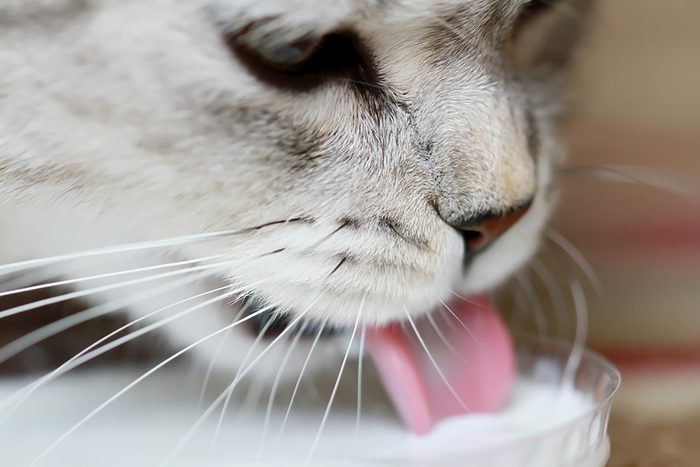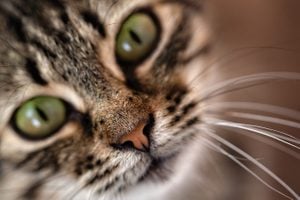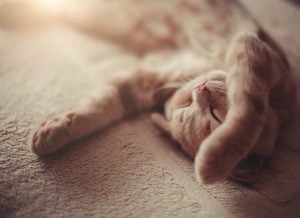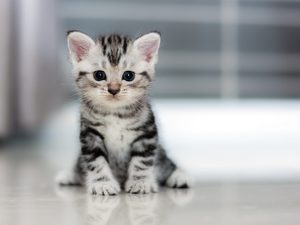Can Cats Drink Milk?

You may want to think twice next time you pour your cat cow's milk.
If you’ve ever read children’s books where there’s a cat, you’re probably wondering, “Can cats drink milk?” The age-old myth that milk and cats go hand-in-hand has officially been debunked by veterinarians and cat experts. Regardless of how tasty milk may be to your cat, this is bad news for their stomach and digestive system. As it turns out, most cats are lactose intolerant.
Is milk bad for cats?
Just like humans, some cats can’t digest lactose, a milk sugar that’s found in dairy. The only time in a cat’s life when its body actually has enough of the enzyme lactase to properly digest lactose is at birth and during its early years of life. This is so the cat can feed off of its mother’s milk. After that, less and less lactase is produced, resulting in potentially increased digestive complications.
“Even though some cats can tolerate milk and seem to enjoy it, cow’s milk just isn’t good for cats,” says Dr. Gary Richter, a veterinary health expert with Rover. “Cats don’t need dairy milk, and the potential problems outweigh the potential benefits.” Here are some other signs that your cat is trying to tell you something.
What happens when cats drink milk?
“[When a cat drinks milk] undigested lactose will stay in their intestines rather than passing into the bloodstream, and end up fermenting,” says Dr. Richter. “Whole, 2 percent, and skim cow’s milk can also add unhealthy amounts of fat to your cat’s diet.” Since cats don’t have the enzyme necessary for digesting lactose, drinking milk can lead to gastrointestinal issues such as an upset stomach, diarrhea, vomiting, loss of appetite and weight, abdominal pain and discomfort, and cause behavior changes such as increased scratching.
Again, just like humans, some cats don’t have a problem digesting milk. Regardless, most veterinarians suggest other alternatives since cow’s milk has no nutritional benefits for cats.
When do cats stop drinking their mother’s milk?
“Cats feed on their mother’s milk after they are born. The only time in a cat’s life when their body has enough of the enzyme lactase to properly digest lactose is at birth and during the first 12 weeks of their life,” says Dr. Richter. “Once their teeth come in, kittens will wean off their mother’s milk and begin eating food.”
What should your cat be drinking instead?
Cats need plenty of water,” Leasa Greer, the Manager of Nutrition & Regulatory Affairs at Solid Gold Pet, told Reader’s Digest. “Water is incredibly important for promoting optimal organ function in cats. A great way to make sure your cat is getting enough water is by feeding him/her wet canned food. Cats are generally less keen on drinking water, so wet food is great for keeping cats hydrated.” Now that you know the answer to the question of, “Can cats drink milk,” is “no,” make sure you avoid making these other dangerous mistakes that cat owners make.





